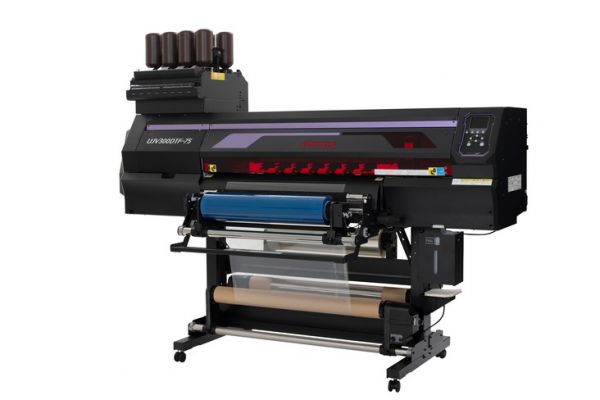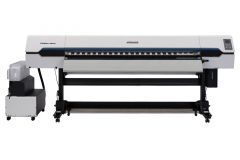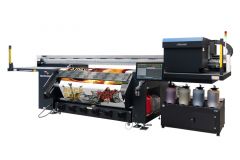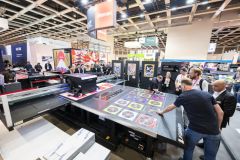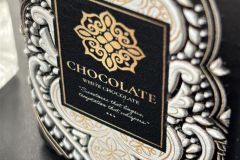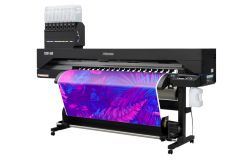New products from Mimaki occupy more than half of its stand at Fespa. The Japanese manufacturer is launching no less than three new printing machines: the UJV300DTF-75 flatbed, the Tx330-1800 textile and apparel printer, and the JV200-160 web printer. It also presents two SVHC- and CMR-free UV inks.
The UJV300DTF-75, the UV flatbed table
The UJV300DTF-75 flatbed printer uses UV technology to print directly on materials previously incompatible with this process. This 1270 x 1300 mm printer, which can print 50m2 per hour, is aimed at the personalization and decoration markets for objects up to 50mm high.
The JV200-160, eco-solvent printer for flexible signage
The JV200-160, a 1.6m wide machine, is an entry-level model that integrates several functions from the Japanese manufacturer's higher-end ranges . It uses eco-solvent inks. It is a continuation of Mimaki's roll-to-roll range for flexible signage, and replaces the JV150 models. It is an entry-level model, while integrating several functions from the Japanese manufacturer's higher-end ranges.
The Tx330-1800, double set of inks for textiles
The Tx330-1800 accepts two types of ink: textile pigment and dye-sublimation. The 1.8 m wide printer is equipped with independent ink tanks. Switching from one set to the other does not require complete mechanical rinsing. It can print on both fabric and paper.
Two UV inks without hazardous substances
Mimaki also introduces two new UV inks, ELH and ELS, formulated without SVHC substances (substances of very high concern) and without compounds classified as CMR (carcinogenic, mutagenic, toxic to reproduction), they meet the latest regulatory requirements.
The odor emitted when using these new inks is reduced by around 30% compared to traditional UV inks.
ELH inks offer the same high scratch resistance as traditional LH-100, while ELS inks offer the same flexibility as traditional LUS-120.
They are intended for the brand's latest machines, in particular those exhibited at Fespa.
